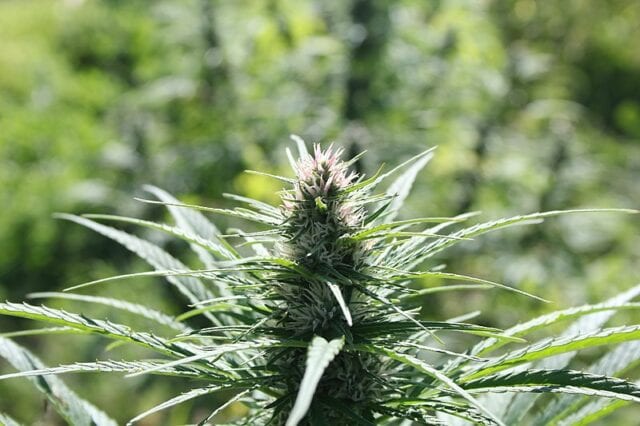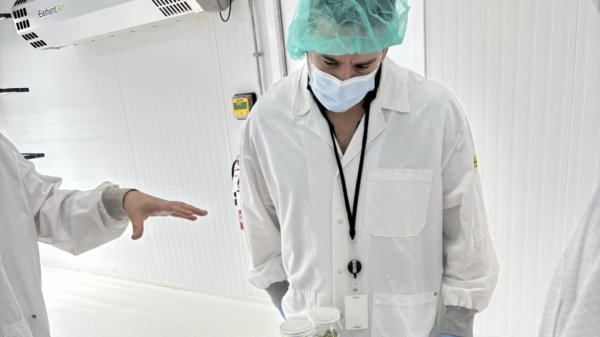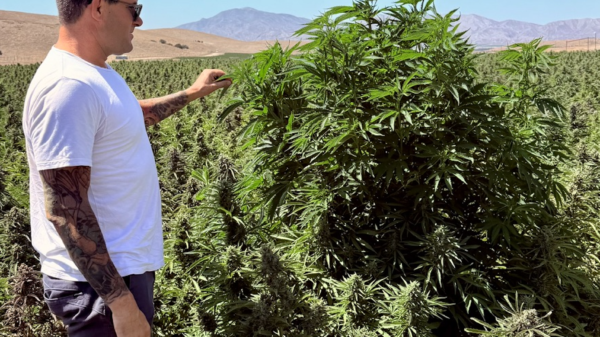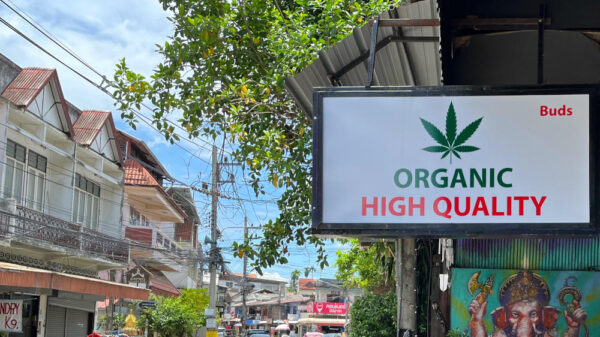Argentina is inching closer to establishing its medical cannabis and hemp industries, with promising expectations for the country’s economy.
The government’s draft law, Regulatory Framework for the Development of the Medical Cannabis and Hemp Industry, passed in the Senate Thursday with an overwhelming 56–5 vote and one abstention, following a review earlier this month.
If approved by the Chamber of Deputies and then signed the president, the regulatory framework will become law. Congress is in recess for the next two weeks, and people close to the issue expect discussion to resume late by late August or early September.
The production and commercialization of medical cannabis and hemp would be regulated under the framework for public and private investment.
This includes the creation of a regulatory agency for the hemp and medical cannabis industries (ARICCAME) to manage and control the entire production chain. The agency would also grant and manage authorizations for production and marketing.
But it’s only a first step, say advocates, who continue to battle stigma in a country where adult-use is strictly illegal.
Hemp and medical cannabis production promising for jobs
Minister of Productive Development Matías Kulfas introduced the draft framework in June before it went to Congress.
“The market for medicinal cannabis and industrial hemp is growing exponentially at a global level. It is a new source of quality employment and productive development,” Kulfas said during the bill’s presentation.

In June, the regulatory framework was presented with high expectations for economic growth. Image via Government of Argentina
Developing a production chain at the local level will have positive impacts across the country, he added.
By 2025, the industries are projected to create 10,000 jobs, about US$500 million in domestic sales and US$50 million in export sales annually.
The new framework would complement the existing medical cannabis law, which allows for therapeutic and palliative cannabis use and research into the plant and its derivatives, as well as the country’s recent regulatory decree.
Last November, the decree amended Argentina’s medical cannabis law more than three years later, finally allowing for self-cultivation and ensuring patient access.

‘I know, it’s only a first step. But we’re here to take it, and to make any other step that is necessary for this plant to be a progress for the nation,’ says industry advocate Diana Barreneche. Photo by Oregon State University via Wikimedia Commons
There would be more security for cannabis and hemp industries by improving production in the country under the regulatory framework, says Diana Barreneche, president of Asociación Civil Proyecto Cáñamo (Project Hemp), a non-governmental organization in Argentina.
Read more: Are these countries next in line to legalize medical cannabis?
Read more: MediPharm strikes medical cannabis supply deal in Brazil
Current laws only permit research of medical cannabis with a focus on patient access, but not the value chain, she adds.
“Since the law itself was very limited, it didn’t solve the problem about the production or the market,” she says.
“Argentina wants to not only supply raw materials, but to produce medical cannabis derivatives and industrial hemp final products.”
Agriculture ingrained in Argentina
“Argentina’s tradition is agriculture,” Barreneche tells Mugglehead by phone, adding there are high expectations for the hemp industry.
Prohibition Partners indicates Argentina’s potential cannabis and hemp industries could be the spark the stagnant economy needs.
“Traditionally viewed as one of the world’s top agricultural producers, earning the country the nickname El Granero del Mundo, meaning ‘The World’s Barn’, it is no surprise that the country is paying closer attention to the socio-economic advantages of commercial cannabis and hemp cultivation,” Prohibition Partners explains.
“Argentina appears to have the infrastructure to become a major player in the global cannabis and hemp industries, with its agricultural expertise, localized talent and mature agricultural export routes, potentially allowing cannabis and hemp crops to cross borders efficiently and assist the country’s much needed economic recovery.”

Winery in Cafayate, Argentina. Argentina has traditionally been viewed as one of the world’s top agricultural producers. Photo by aaepstein via Wikimedia Commons
‘It’s only a first step’
While the framework fills in where previous legislation left off and government regulation is expected to be profitable, it isn’t the end of cannabis prohibition.
Argentina used to grow hemp, and Barreneche says older generations seem more understanding of the framework because “they get it.” But the five Senate votes against it were accompanied by comments suggesting cannabis would harm children or was negative for public health.
Like prohibition in other countries, she notes racism and classism skewed the perception of cannabis, and it had been viewed by police as if “marijuana is the devil.”
Read more: Portugal’s second shot at legalizing cannabis could be thwarted by stigma
Read more: Activists and experts push for legal cannabis in Taiwan
Recreational use of cannabis remains illegal under strict criminal law and isn’t included in the framework, but the legalization of medical cannabis in 2017 shifted public perspective away from stigmatization, Barreneche explains. “That battle is won.”
“In this troubled water or muddy waters comes this bill intended to provide a productive approach for medical cannabis and also for industrial hemp.”
Regardless of the framework’s outcome, Barreneche says it’s not the end of cannabis and hemp advocacy.
“I know, it’s only a first step. But we’re here to take it, and to make any other step that is necessary for this plant to be a progress for the nation,” she says, recalling the goals of one of the country’s founding fathers, Manuel Belgrano, who had said the country would benefit from hemp production.
“[We’re] trying to make that dream 200 years later come true. So it’s a long way but we’re here to take all of the necessary steps to make it real.”
Follow Kathryn Tindale on Twitter
kathryn@mugglehead.com













